Praise for To Defend the Revolution Is to Defend Culture
 Rebecca Gordon-Nesbitt is an internationally esteemed curator of contemporary art and a committed commentator upon cultural policy, and, in this unique work, she turns her attention to the cultural policy of the Cuban Revolution.
Rebecca Gordon-Nesbitt is an internationally esteemed curator of contemporary art and a committed commentator upon cultural policy, and, in this unique work, she turns her attention to the cultural policy of the Cuban Revolution.
Although there exist academic studies of Cuban art since the Revolution, there has been little examination of the policy underlying this practice. As such, this book is of inestimable value not only to those Cubans and exiled Cubans (in the US and elsewhere), interested in the policies which have shaped the representation of their cultural identity, and to students of Cuban culture more generally, but also to cultural policy-makers in Europe, North America, Africa, Asia and Latin America.
At a time when Cuba is undergoing a period of political transition and economic reform which anticipates significant cultural transformation, this work is both timely and necessary to situate, contextualize and inform contemporary debates on future Cuban cultural policy, in particular, and the ways in which local and national cultural strategies address issues of globalization and neoliberalism more generally.
Ross Birrell, co-director of the film Guantanamera and founding editor of Art & Research, Glasgow School of Art.
 Rebecca Gordon-Nesbitt has written a tremendous book, one that allows us to imagine what culture might look like in a free society a society in which art and culture are not dictated by a market and can be developed and expressed freely, limited only by the imagination. This opening of the imagination as to what is possible is achieved through a detailed cultural and political description of the early years of the Cuban Revolution. Gordon-Nesbitt finds a wonderful balance between expressing the unencumbered prioritization of cultural expression in Cuba and the various challenges that this process faced.
Rebecca Gordon-Nesbitt has written a tremendous book, one that allows us to imagine what culture might look like in a free society a society in which art and culture are not dictated by a market and can be developed and expressed freely, limited only by the imagination. This opening of the imagination as to what is possible is achieved through a detailed cultural and political description of the early years of the Cuban Revolution. Gordon-Nesbitt finds a wonderful balance between expressing the unencumbered prioritization of cultural expression in Cuba and the various challenges that this process faced.
Marina Sitrin, author of They Cant Represent Us! Reinventing Democracy from Greece to Occupy.
 Che Guevara believed that art was the highest form of revolution. And Fidel Castro, searching for the appropriate rank to confer upon Guevara at the public wake following his death, called him Artist. To Defend the Revolution Is to Defend Culture is a brilliant and comprehensive study of the Cuban Revolutions struggle to counteract neoliberalisms commodity-oriented degradation of culture with a strategy that recognizes art as an integral part of life, honors the creative mind, and has promoted an ongoing conversation between artist and public that has moved far beyond the borders of the small Caribbean island. It is a struggle that has had its extraordinary highs and painful lows, and Gordon-Nesbitt documents its complex history. This is a must read for everyone interested in Cuba, art, and culture. And it is long overdue.
Che Guevara believed that art was the highest form of revolution. And Fidel Castro, searching for the appropriate rank to confer upon Guevara at the public wake following his death, called him Artist. To Defend the Revolution Is to Defend Culture is a brilliant and comprehensive study of the Cuban Revolutions struggle to counteract neoliberalisms commodity-oriented degradation of culture with a strategy that recognizes art as an integral part of life, honors the creative mind, and has promoted an ongoing conversation between artist and public that has moved far beyond the borders of the small Caribbean island. It is a struggle that has had its extraordinary highs and painful lows, and Gordon-Nesbitt documents its complex history. This is a must read for everyone interested in Cuba, art, and culture. And it is long overdue.
Margaret Randall, author of Che on My Mind and Hayde Santamara, Cuban Revolutionary: She Led by Transgression.
 There is, I am sure, a great deal to be learned from the Cuban experience. And I couldnt agree more with Rebecca Gordon-Nesbitt about the threat to culture under the neoliberal assault on the general population.
There is, I am sure, a great deal to be learned from the Cuban experience. And I couldnt agree more with Rebecca Gordon-Nesbitt about the threat to culture under the neoliberal assault on the general population.
Noam Chomsky, Institute Professor of Linguistics (Emeritus), Massachusetts Institute of Technology.
 For all the obvious reasons, there is very little useful scholarship on the achievements of socialism past, present and to come. This valuable study of emergent cultural structures in the Cuban Revolution fills a real gap and reminds us of one of that revolutions many (and mostly ignored) successes. Cuba is still in existence; maybe it actually has some lessons for us, in our current social distress.
For all the obvious reasons, there is very little useful scholarship on the achievements of socialism past, present and to come. This valuable study of emergent cultural structures in the Cuban Revolution fills a real gap and reminds us of one of that revolutions many (and mostly ignored) successes. Cuba is still in existence; maybe it actually has some lessons for us, in our current social distress.
Fredric Jameson, author of Postmodernism; or, The Cultural Logic of Late Capitalism.
 Writing on cultural policy has completely forgotten the socialist and communist regimes of the 20th century or preserves them as historical memories only. The end of the Soviet Union and the gradual erosion of any explicit social values from the Chinese regime has left us with an impoverished set of cultural policy goals, in which city branding, innovation systems and tourism dollars reign supreme. That there could be another conception of artistic practice and cultural policy; that this could be socialist and not be about tractors and propaganda; that this might persist as a living tradition all this remains hidden from view. Rebecca Gordon-Nesbitts new book makes an enormous contribution to the process of retrieving buried histories and opening new futures for cultural policy at a time when the value of culture is utterly debased and obscured.
Writing on cultural policy has completely forgotten the socialist and communist regimes of the 20th century or preserves them as historical memories only. The end of the Soviet Union and the gradual erosion of any explicit social values from the Chinese regime has left us with an impoverished set of cultural policy goals, in which city branding, innovation systems and tourism dollars reign supreme. That there could be another conception of artistic practice and cultural policy; that this could be socialist and not be about tractors and propaganda; that this might persist as a living tradition all this remains hidden from view. Rebecca Gordon-Nesbitts new book makes an enormous contribution to the process of retrieving buried histories and opening new futures for cultural policy at a time when the value of culture is utterly debased and obscured.
Justin OConnor, Professor of Communications and Cultural Economy, Monash University, Melbourne, Australia.
 Rebecca Gordon-Nesbitt is to be congratulated on having had the courage and tenacity to explore this largely uncharted territory and thereby to have given fresh impetus to the debate on cultural policy in Cuba. With a specific focus on the visual arts, her study is as timely as it is enlightening at this particular historical juncture. This is not only because Cuba is undergoing significant transformations but also because her detailed study of cultural policy under socialism provides much food for thought for all those interested in broader questions of policy-making and provision. This certainly contributes significantly to our understanding of the current neoliberalisation of the cultural domain in the West.
Rebecca Gordon-Nesbitt is to be congratulated on having had the courage and tenacity to explore this largely uncharted territory and thereby to have given fresh impetus to the debate on cultural policy in Cuba. With a specific focus on the visual arts, her study is as timely as it is enlightening at this particular historical juncture. This is not only because Cuba is undergoing significant transformations but also because her detailed study of cultural policy under socialism provides much food for thought for all those interested in broader questions of policy-making and provision. This certainly contributes significantly to our understanding of the current neoliberalisation of the cultural domain in the West.
Chin-tao Wu, author of Privatising Culture: Corporate Art Intervention since the 1980s.
 This book will delight some readers and provoke others. But whatever your take on socialist cultural policy, this broadly affirmative account of Cuban experiences makes fascinating reading. Rebecca Gordon-Nesbitts meticulously researched study makes a substantive contribution to our understanding of the historical development of cultural policy under different political and economic regimes.
This book will delight some readers and provoke others. But whatever your take on socialist cultural policy, this broadly affirmative account of Cuban experiences makes fascinating reading. Rebecca Gordon-Nesbitts meticulously researched study makes a substantive contribution to our understanding of the historical development of cultural policy under different political and economic regimes.
Oliver Bennett, editor of the International Journal of Cultural Policy.
 This study is thoroughly researched and commendably detailed, excelling especially in its methodical approach to tracing the formation and evolution of cultural policy in Cuba from 1959 to 1976. It is likely to prove of considerable use to others working on, and interested in, the relationship between art and politics, not only in Cuba but also beyond the Cuban case.
This study is thoroughly researched and commendably detailed, excelling especially in its methodical approach to tracing the formation and evolution of cultural policy in Cuba from 1959 to 1976. It is likely to prove of considerable use to others working on, and interested in, the relationship between art and politics, not only in Cuba but also beyond the Cuban case.
Antoni Kapcia, Professor of Latin American History, University of Nottingham, author of Literary culture in Cuba: Revolution, nation-building and the book.
 Understanding the uniquely Cuban approach to the support of one of the worlds most celebrated, diverse cultures is essential to a thorough understanding of the Revolution. With meticulous research and insightful analysis, Rebecca Gordon-Nesbitt documents the policies, programs and, most importantly, the philosophy behind the active cultivation of vibrant and authentic arts and culture by and for the people. Revolutionary women, like Hayde Santamara and Celia Snchez, played a particularly important role in the arts and culture movement, and this book gives voice to their invaluable contributions.
Understanding the uniquely Cuban approach to the support of one of the worlds most celebrated, diverse cultures is essential to a thorough understanding of the Revolution. With meticulous research and insightful analysis, Rebecca Gordon-Nesbitt documents the policies, programs and, most importantly, the philosophy behind the active cultivation of vibrant and authentic arts and culture by and for the people. Revolutionary women, like Hayde Santamara and Celia Snchez, played a particularly important role in the arts and culture movement, and this book gives voice to their invaluable contributions.


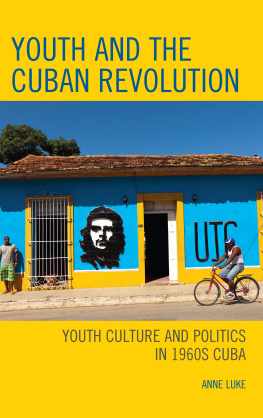
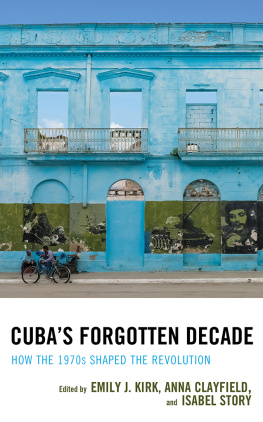
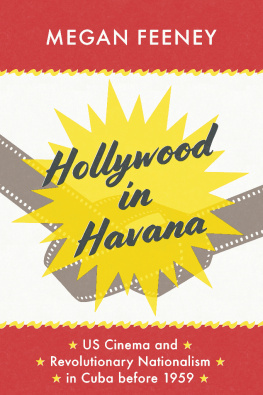
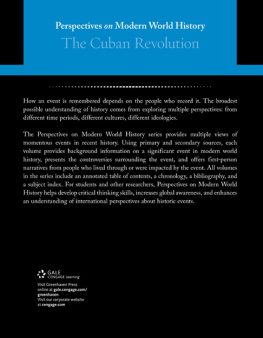
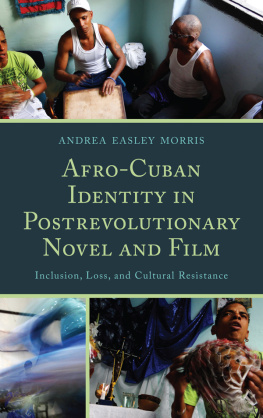
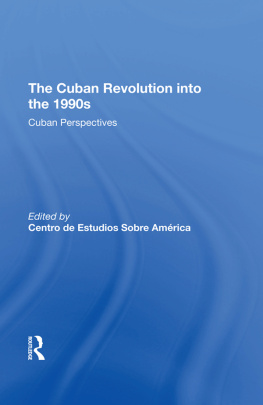
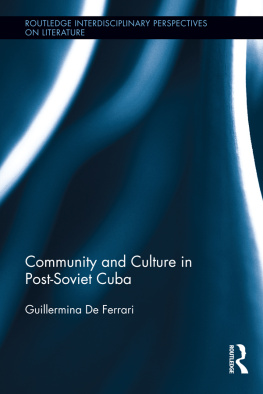

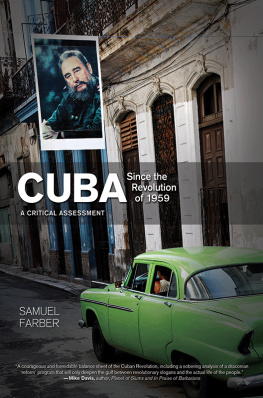
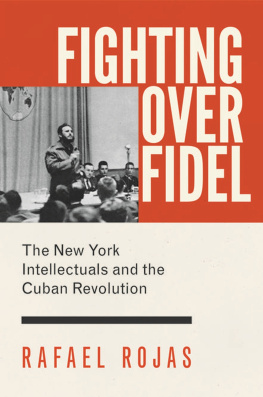
 Rebecca Gordon-Nesbitt is an internationally esteemed curator of contemporary art and a committed commentator upon cultural policy, and, in this unique work, she turns her attention to the cultural policy of the Cuban Revolution.
Rebecca Gordon-Nesbitt is an internationally esteemed curator of contemporary art and a committed commentator upon cultural policy, and, in this unique work, she turns her attention to the cultural policy of the Cuban Revolution.